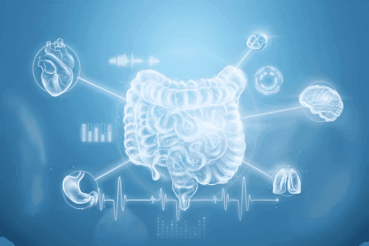Understanding the Gut-Brain Connection: How Your Gut Health Affects Your Mental Health
In the quest for optimal well-being, we often focus on various aspects of our health: physical fitness, nutrition, and even mental health practices such as meditation and therapy. However, there’s one vital component that is sometimes overlooked – our gut health. The intricate relationship between our gut and brain, known as the gut-brain connection, plays a significant role in our overall health and can have a profound impact on our mental well-being. In this comprehensive guide, we will delve into the fascinating world of the gut-brain connection, exploring its mechanisms, the role of gut microbiota, and practical steps you can take to nurture your gut for improved mental health.
The Gut-Brain Connection Unveiled
The gut-brain connection is a complex and bidirectional communication network that exists between our gastrointestinal system (the gut) and our brain. This intricate relationship is facilitated by various pathways, including the nervous system, the immune system, and a vast array of biochemical signaling molecules.
How It Works
- The Gut as an Ecosystem Your gut microbiota is like a mini-ecosystem, with various species of microorganisms coexisting. When this ecosystem is in balance, it contributes to overall health, including mental well-being.
- Probiotics and Mental Health Probiotics, which are beneficial bacteria found in fermented foods and supplements, can positively influence your gut microbiota. Studies have shown that the consumption of probiotics can reduce symptoms of anxiety and depression.
- Dysbiosis and Mental Health Disorders Dysbiosis, an imbalance in gut microbiota, has been linked to mental health disorders such as depression and anxiety. Restoring balance to your gut microbiota through dietary changes and probiotics can potentially alleviate these symptoms.
Nurturing Your Gut for Mental Health
Now that we’ve established the importance of the gut-brain connection, let’s explore practical steps you can take to enhance your gut health and, subsequently, your mental well-being.
Dietary Strategies
Fiber-Rich Foods: A Gut's Best Friend
Fiber is essential for a healthy gut. Incorporate foods like whole grains, fruits, and vegetables into your diet to nourish the beneficial bacteria in your gut.
Prebiotic Foods
Prebiotics are non-digestible fibers that promote the growth of beneficial gut bacteria. Foods like garlic, onions, and leeks are rich sources of prebiotics.
Lifestyle Habits
Manage Stress
Chronic stress can disrupt the gut-brain connection. Incorporate stress-reduction techniques such as yoga, meditation, or mindfulness into your daily routine.
Adequate Sleep
Prioritize quality sleep, as it plays a pivotal role in maintaining a healthy gut and a balanced mood.
Probiotics and Supplements
Consult a Healthcare Professional
If you’re considering probiotics or other supplements to improve your gut health, consult with a healthcare professional to determine the most suitable options for you.
Conclusion
The gut-brain connection is a remarkable testament to the intricate interplay between our physical and mental health. By understanding and nurturing your gut health, you have the potential to positively impact your mood, cognition, and overall mental well-being. Remember that the journey to a healthier gut and a happier mind is a continuous process, but the rewards are well worth the effort. Start by making informed dietary and lifestyle choices, and consider seeking professional guidance when necessary. Your gut and brain will thank you for it, leading to a brighter and more balanced life.





